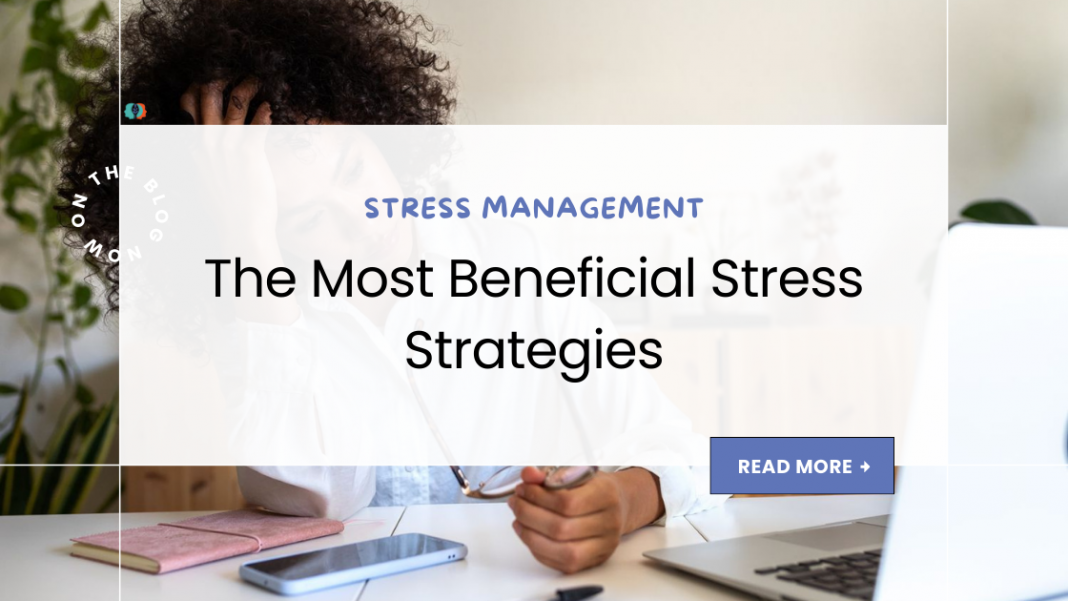Stress is an inevitable aspect of life, ranging from minor annoyances to significant crises. Although you may not have control over every situation, you do have the power to determine your response. Excessive or prolonged stress can have a negative impact on your health, making it crucial to employ effective stress reduction techniques to soothe both your mind and body.
Here are the most beneficial stress strategies in 2024:
- Exercise
- Meditation
- Deep Breathing
- Healthy Diet
- Positive Self-Talk
- Social Support
- Yoga
- Gratitude
- Leisure Activities
- Eliminating Stressors
Remember that what is effective in one setting, like home, might not be suitable in another. Having a diverse set of stress relief strategies is important, allowing you to choose the most appropriate method for your specific situation.
Exercise
Exercise is an excellent stress reliever because it helps release endorphins, the body’s natural mood elevators. Activities like running, swimming, cycling, or even brisk walking can significantly reduce stress. They improve blood circulation, enhance overall fitness, and provide a mental break from daily stressors. Incorporating regular physical activity into your routine can lead to better sleep, which is often disrupted by stress.
Suggestions for integrating exercise into your daily life include setting realistic fitness goals, finding activities you enjoy, and creating a balanced routine that doesn’t add to your stress. It can be as simple as a daily 30-minute walk or a set of exercises done at home. The key is consistency and choosing activities that you look forward to doing, thus making it less of a chore and more of a pleasurable, stress-reducing activity.
Meditation
Meditation is a proven method for reducing stress by promoting relaxation and enhancing mindfulness. It helps in calming the mind and reducing the clutter of thoughts that often leads to stress. Regular meditation practice can lower cortisol levels, the body’s primary stress hormone, and improve emotional well-being. Techniques like mindfulness meditation encourage staying present and fully engaging with the moment, helping to alleviate worries about the past or future.
To incorporate meditation into your routine, you could start with just a few minutes each day. Guided meditations, available through apps or online, can be helpful for beginners. Finding a quiet, comfortable space and setting a regular time for practice can establish a helpful routine. Meditation not only reduces stress but also enhances focus, clarity of thought, and emotional resilience.
Deep Breathing
Deep breathing exercises are a simple yet effective way to reduce stress. They work by activating the body’s relaxation response, slowing down your heart rate, and lowering blood pressure. Techniques like diaphragmatic breathing, where you breathe deeply into the belly rather than shallowly into the chest, can be particularly effective. This kind of breathing signals the brain to calm down and relax, which then sends this message to your body.
Implementing deep breathing can be done anywhere and at any time, making it a highly accessible tool for stress relief. You might practice deep breathing during moments of acute stress or as a daily routine to maintain a calm state of mind. Regular practice, even for a few minutes a day, can make a significant difference in managing stress levels.
Healthy Diet
A healthy diet plays a crucial role in how effectively your body handles stress. Foods rich in vitamins and minerals, such as fruits, vegetables, whole grains, and lean proteins, can boost the immune system and lower blood pressure, both of which can be affected by stress. Certain foods, like those high in omega-3 fatty acids, can also have a direct effect on brain health, improving mood and reducing anxiety.
To maintain a diet that helps combat stress, focus on balanced meals that include a variety of nutrients. Avoiding excessive caffeine and sugar, which can increase anxiety and energy fluctuations, is also beneficial. Staying hydrated and implementing regular meal times can help maintain stable blood sugar levels, reducing stress and improving overall well-being.
Positive Self-Talk
Engaging in positive self-talk can transform your mindset and reduce stress. This involves consciously shifting negative thoughts and perceptions into more positive affirmations. For instance, instead of telling yourself, “I can’t handle this,” you might say, “I’m doing the best I can.” This positive internal dialogue can reduce the psychological impact of stress and foster a more resilient mindset.
To practice positive self-talk, start by becoming aware of your inner dialogue, particularly during stressful times. Challenge and replace negative thoughts with more constructive, compassionate ones. Affirmations and mantras can also be helpful tools. Regular practice can shift your mindset over time, leading to reduced stress and increased self-confidence.
Social Support
Social support is a vital element in managing stress. Having a network of friends and family to turn to can provide emotional comfort and practical help during tough times. Sharing your thoughts and concerns with others can provide new perspectives, reduce the feeling of being alone with your problems, and offer solutions that you might not have considered.
To strengthen your social support, make an effort to maintain connections with friends and family. This can include regular check-ins, participating in group activities, or joining support groups or clubs where you can meet new people with similar interests. Remember, it’s also important to be a supportive friend or family member yourself, as helping others can also reduce your own stress levels.
Yoga
Yoga combines physical postures, breathing exercises, and meditation, making it an excellent practice for stress relief. It enhances physical flexibility, improves balance and body awareness, and promotes mental calmness. The practice of yoga also helps in reducing muscle tension, which is a common physical manifestation of stress.
To incorporate yoga into your life, consider attending a class or following an online tutorial suited to your experience level. Yoga can be practiced in the comfort of your home and adapted to fit any schedule. Regular practice, even if it’s just a few minutes a day, can yield significant benefits in reducing stress and improving overall well-being.
Gratitude
Cultivating a sense of gratitude can shift your focus from stressors to what’s positive in your life. Keeping a gratitude journal, where you write down things you’re thankful for each day, can help change your mindset to one that’s more positive and less focused on stress. This practice has been shown to lower stress levels and improve mood.
To practice gratitude, try to acknowledge at least three things you are grateful for each day. These can be simple things like a sunny day, a good meal, or a supportive friend. This habit can foster a more optimistic outlook on life, reducing the impact of stress and improving overall happiness.
Leisure Activities
Engaging in hobbies or leisure activities that you enjoy can be an effective way to relieve stress. These activities provide a break from daily responsibilities and allow your mind to focus on something pleasurable and relaxing. Whether it’s reading, gardening, painting, or any other hobby, these activities can provide a sense of accomplishment and joy.
To make the most of leisure activities, choose hobbies that genuinely interest you and fit into your schedule. Setting aside specific times for these activities can ensure that you regularly engage in them. The key is to find activities that relax you and bring you joy, providing a healthy outlet for stress relief.
Eliminating Stressors
Identifying and addressing sources of stress in your life is crucial for effective stress management. This might involve changing your work environment, addressing relationship issues, or learning to say no to additional responsibilities. By eliminating or reducing these stressors, you can significantly decrease your overall stress levels.
Start by identifying the primary sources of stress in your life. Then, consider practical steps to reduce or eliminate these stressors. This may require setting boundaries, seeking professional help, or making lifestyle changes. Remember, it’s not always possible to eliminate all stressors, but reducing them where you can make a substantial difference in your stress levels.
Addressing the Root: Problem-Focused Coping for Stress Relief
Many stress relief strategies primarily aim at altering emotional responses. However, in certain situations, true relief comes only when you change the circumstances causing the stress. This approach is known as problem-focused coping, distinguishing it from emotion-focused coping, which concentrates on changing one’s emotional reaction to stressors.
Problem-focused coping is about taking proactive steps to eliminate or modify the actual source of stress, rather than just adjusting your feelings towards it. This method can be more effective in situations where you have control over the stressors. For example, if work overload is a source of stress, problem-focused coping might involve delegating tasks, discussing workload with your manager, or improving time management skills.
This approach requires identifying the specific problems causing stress and then brainstorming possible solutions. It may involve seeking advice, acquiring new skills, or making changes in your environment or behavior. By directly addressing the root cause of stress, problem-focused coping can lead to long-term solutions and a significant reduction in stress levels.
Additionally, problem-focused coping can be empowering as it involves taking control of the situation and making tangible changes. This sense of empowerment can itself be a stress reliever, as it reinforces your ability to influence your environment and outcomes. However, it’s important to recognize that not all stressors are within your control. In such cases, a combination of problem-focused and emotion-focused coping might be necessary for effective stress management.
A word from Free Mental Help
Discovering the most beneficial stress strategies in 2024 might require a bit of trial and error. It’s also worth noting that some techniques might need regular practice to be truly beneficial.
However, the effort to identify strategies that effectively help you navigate through life’s inevitable fluctuations is crucial. Maintaining stress at a manageable level is vital for your overall health and well-being. Finding the right balance and tools for stress management is an important part of taking care of yourself.



